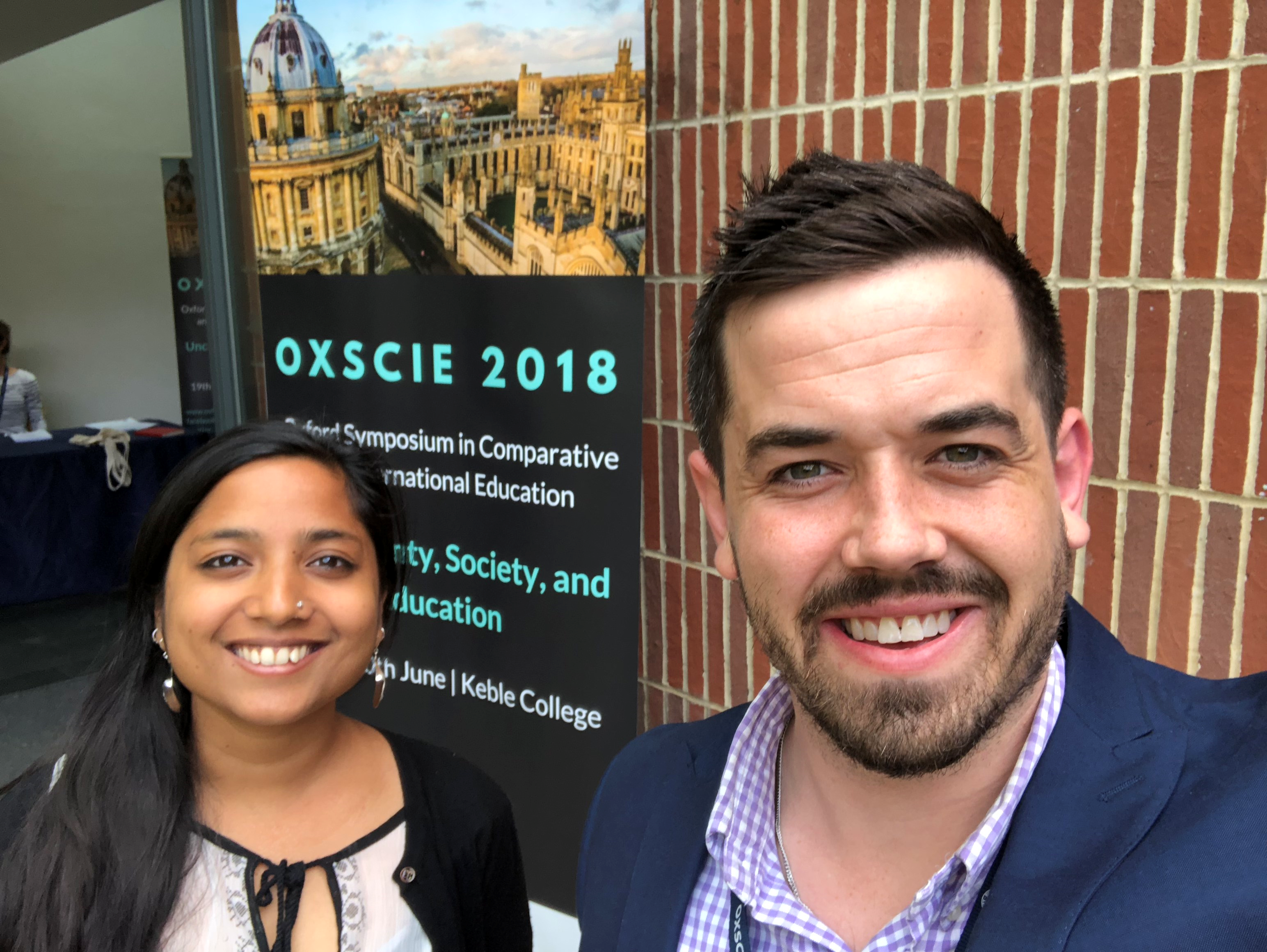
Michael Meaney was chosen to take part in the first Gates Notes Deep Dive series on educational inequality.
In an ideal world, students and parents could use data to make decisions about their future.
Bill Gates
A Gates Cambridge Scholar participated in the first Gates Notes Deep Dive series with Bill Gates, where he invited early career scholars from around the US to talk about how data can help improve educational outcomes for Black and Latino students and students from low-income backgrounds.
Michael Meaney [2016 – pictured right] was one of several graduate students who were hand-picked to take part in the discussion alongside two experts who are already working on education data initiatives.
They talked about how to better leverage data in educational research, the challenges of doing so and some of the tools the foundation is helping to develop toward rectifying these issues.
Michael asked Bill Gates about the learning experiences he had when he was younger that led him to develop the capabilities of lifelong learning, specifically asking about the “think week” he is famous for taking each year where he dedicates himself to quiet isolated study.
In a blog about the event, held in early June, Bill Gates said there is relatively little detailed data to tackle inequality in the education system when compared with health.
He stated: “In an ideal world, students and parents could use data to make decisions about their future. Educators would be able to look at each student individually, see where they’re falling behind, and connect them with resources to help them catch up. Policymakers – especially state governments – could identify which areas need more investment while protecting students’ privacy, and organisations like our foundation could bring everyone together to learn from the highest performing schools.”
Gates added that the participants in the discussion “make me optimistic that brighter days are ahead for America’s students and teachers”.
Michael, who is continuing his academic work at Arizona State University where he is a Visiting Research Fellow at the EdPlus Action Lab, did his PhD on Massive Open Online Courses. He devised a new theory of how MOOCs are produced to account for why they struggle to enhance educational equity. One component of this is the notion of early adopter iteration bias, whereby data from early adopters of technologies is used to iterate the technologies, and those early adopters are usually from privilege backgrounds, so technologies end up being optimised for those less in need. He says this seems to be the case with MOOCs.












